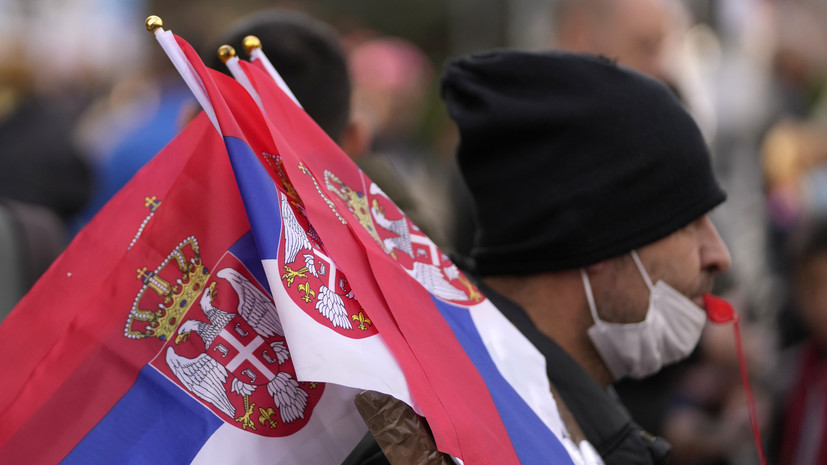From the tender documents available to RT, posted on the profile portal of EU government contracts, it follows that the European Commission has planned to allocate up to €4.8 million for grant programs under the Serbian project.
In the preamble of the contract, there is a reference to the report of the European Commission "Serbia 2021", which notes that "further efforts are required to ensure systematic cooperation between the government and civil society."
Also on russian.rt.com Serbian President Vučić: if the West does not accept Putin's proposal, hell awaits everyone
It also talks about the need to “create an enabling environment on the ground for the development and funding of civil society organizations against the backdrop of ongoing verbal attacks against them, including in parliament.”
At the same time, European Commission officials also point out problematic, from their point of view, moments in the development of Serbian civil society.
In particular, it is noted that Serbian NGOs continue to face numerous difficulties in the field of public relations, contacts with other organizations, as well as the provision of “adequate financial resources”.
The EU states that the National Resource Center "will ensure the expansion of the capacity of civil society organizations and informal associations."
Steroids for NCOs
Specific activities under the proposed EU plan to strengthen the influence of Serbian NGOs can be divided into three parts.
Firstly, it is “training and coaching” of local civil society organizations with subsequent monitoring of results for six months.
The second task is to build the infrastructure for financing NGOs.
One of the possible options here is the creation of NPO hubs, which will distribute the funds received from the EU as a “second tier”, that is, indirectly.
Thirdly, the tender documents define specific areas of interest in which Serbian NGOs will be financially supported.
We are talking about the policy of developing competition, consumer rights, agrarian and transport policy, the problems of urbanization and the development of rural areas.
Also on russian.rt.com The United States expressed a desire to know more about cooperation between Russia and the Western Balkan countries
Construction of the fifth columns
Grants of this kind, even if they do not directly state opposition to the influence and interests of Russia, are primarily a way to “reformat” local public opinion and the NGO sphere in an anti-Russian vein, a political scientist, an expert at the International Institute for Humanitarian and Political Studies, notes in an interview with RT. Research Vladimir Bruter.
“The West, and in particular the European Union, will never refuse to create fifth columns where possible.
Serbia is no exception,” says the expert.
At the same time, he emphasizes that the efforts of the European Union in Serbia to a certain extent fall on the political ground already prepared in advance.
Also on russian.rt.com, Serbian Interior Minister said that Belgrade will not become "NATO infantry"
“Serbia officially declares its desire to join the European Union.
It is logical that the European Union wants to create its own detachment of supporters there through the formation of a network of controlled NGOs, ”the political scientist believes.
Bruter also noted that all the talk about the inevitable entry of Serbia into the EU due to its geographical location in the camp of the EU member states does not stand up to scrutiny.
“Bosnia and Herzegovina is not a member of the European Union, Kosovo is not a member of the European Union, de facto it is no longer part of Serbia.
In addition, Serbia also has a border with Hungary, which takes a separate position from most EU countries on many issues.
Taking into account the recent events around granting the status of candidate countries to Ukraine and Moldova, the process of EU enlargement is completely taking on some kind of unmanageable character, ”he notes.

